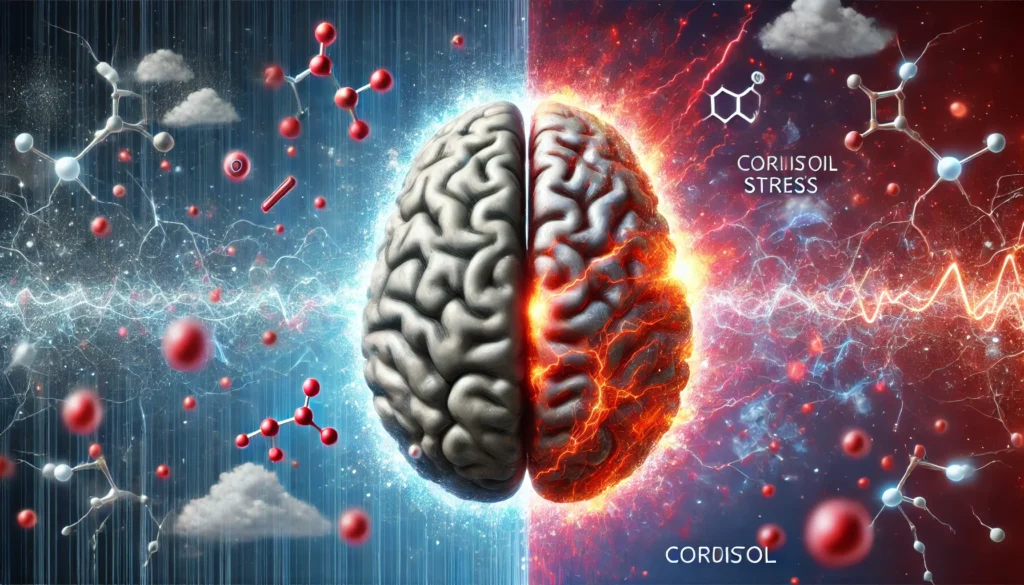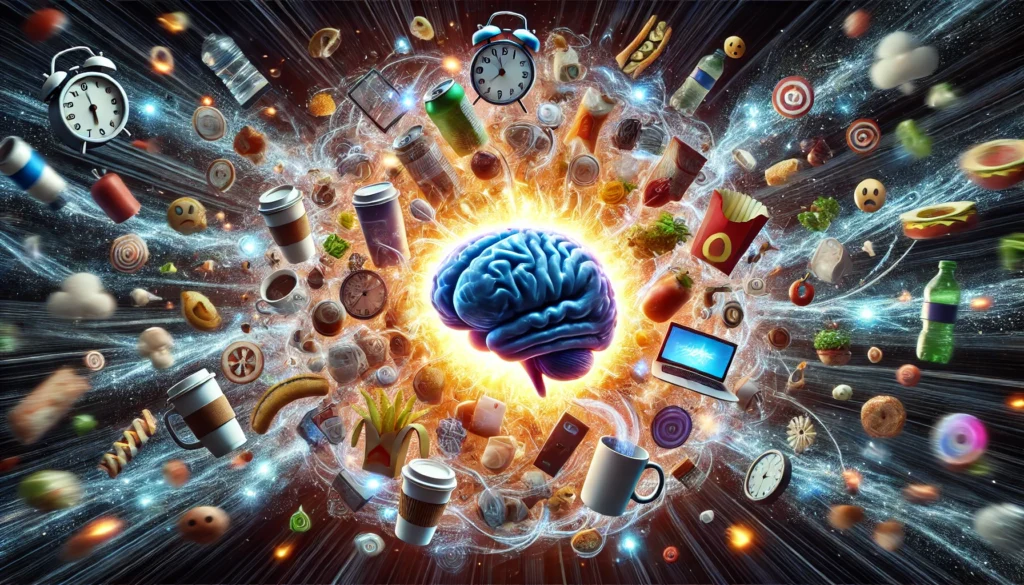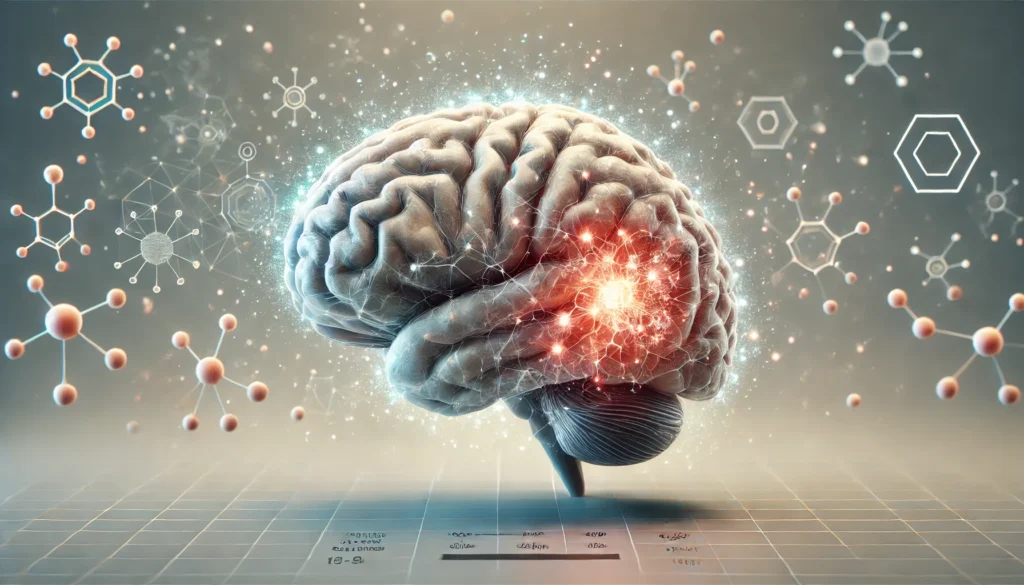Introduction
In today’s fast-paced, digitally saturated world, it’s not uncommon to hear someone say, “My brain is fried.” The phrase has become a shorthand for a very real and often distressing state of mental burnout, cognitive fatigue, and emotional exhaustion. But beyond the casual expression lies a complex web of neurological, psychological, and physiological factors that contribute to this sensation. When someone says, “My brain feels fried,” they’re often describing a moment—or a persistent state—where thinking becomes difficult, focus evaporates, and the smallest tasks feel overwhelmingly difficult.
You may also like: Do Carbs Cause Brain Fog? What Science Reveals About Carbohydrates and Mental Clarity
Science increasingly validates this experience as more than just an emotional metaphor. Cognitive overload, chronic stress, poor sleep hygiene, and excessive information consumption can all literally impair brain function. Whether you’re a student pulling all-nighters, a professional in a high-stress job, or simply someone navigating life in a hyper-connected society, that foggy, fried-brain feeling is an alarm bell that should not be ignored.
This article explores the multifaceted science behind why your brain may feel overworked and underperforming. We’ll delve into the neurochemical, lifestyle, and psychological triggers that create this sense of mental depletion, examine the signs and symptoms that define this state, and offer evidence-based strategies to help restore cognitive clarity. If you’ve ever felt like your brain is misfiring, shutting down, or working against you, understanding the underlying mechanisms may be your first step to reclaiming mental sharpness and emotional balance.
Let’s unpack why so many people today feel like their minds are burning out—and what science recommends you do when your brain is fried.

Understanding the “Fried Brain” Phenomenon
The sensation of feeling mentally fried is often a cumulative response to sustained stressors that impact the brain’s ability to process, store, and recall information efficiently. Neurologically speaking, your brain isn’t literally fried like a circuit board, but it is reacting to systemic overload. This overload can stem from prolonged exposure to stress hormones like cortisol and adrenaline, poor sleep quality, nutritional deficiencies, lack of downtime, and emotional exhaustion.
From a neurobiological standpoint, stress initiates a cascade of hormonal responses that, when chronic, impair the hippocampus (critical for memory), the prefrontal cortex (key for decision-making), and even shrink gray matter. So when someone says “my brain is fried,” they may actually be experiencing temporary or ongoing impairments in cognitive processing, executive function, emotional regulation, and even physical energy due to overtaxed neural networks.
Emerging neuroscience also suggests that mental fatigue can lead to decreased synaptic efficiency, meaning your brain has to work harder to make connections. Over time, this can mimic symptoms seen in anxiety, depression, and even neurodegenerative diseases—though the causes and long-term outcomes differ significantly. It’s crucial to distinguish between occasional mental fatigue and chronic cognitive dysfunction, as the latter may signal deeper systemic or psychiatric issues requiring intervention.
For individuals who say “my brain feels fried,” this state is often marked by confusion, inability to concentrate, irritability, and a persistent feeling of mental heaviness. It’s a signal that the brain’s resources are being depleted faster than they can be replenished—a condition that demands strategic care, not just rest.

Common Triggers That Make You Feel Like Your Brain Is Fried
One of the key factors in understanding this mental state is recognizing the contributing elements that commonly trigger it. Although unique life circumstances vary, several universal factors often underlie the sensation of mental burnout.
Chronic stress is one of the most prominent culprits. When your brain remains in a constant fight-or-flight mode, it becomes saturated with stress hormones that inhibit neurogenesis and elevate inflammation. Over time, this suppresses the function of the hippocampus, which is essential for memory formation and learning. In this state, people may frequently report, “my brain feels fried,” as stress hijacks the very processes that enable rational thought and memory consolidation.
Sleep deprivation or poor sleep quality is another major factor. During sleep, particularly deep and REM sleep, the brain undergoes processes of detoxification, memory integration, and hormonal rebalancing. A lack of adequate sleep results in reduced glucose metabolism in the prefrontal cortex, which impairs judgment and executive functioning. If you’re wondering why even simple tasks feel monumentally difficult, disrupted sleep could be the root cause.
Nutritional imbalances also contribute significantly. The brain is metabolically demanding, consuming up to 20% of the body’s energy. Deficiencies in critical nutrients such as omega-3 fatty acids, B vitamins, magnesium, and amino acids can significantly impair neurotransmitter function and mood regulation. For those who rely on quick, processed meals, skipping meals, or caffeine overload, this depletion can silently erode cognitive resilience until one day, you realize, “my brain is fried.”
Digital overstimulation has become a modern-day antagonist of mental clarity. The constant switching between apps, emails, texts, and social media rewires our brains for distraction rather than deep focus. Neurologists now compare this condition to digital-induced ADHD, where the brain’s reward system is overstimulated by rapid dopamine hits from scrolling or multitasking. It’s a cycle that leads to shorter attention spans, fragmented memory, and, eventually, cognitive exhaustion.
Finally, emotional labor—the invisible effort of managing feelings in personal or professional settings—can play a silent but potent role. Caregivers, teachers, healthcare workers, and even parents often suppress their emotions to remain composed or supportive. Over time, this suppression acts like a cognitive tax, slowly draining your mental energy and prompting that eventual crash where “my brain feels fried” becomes more than a metaphor.
Signs and Symptoms of a Fried Brain
Understanding the warning signs of mental burnout is essential for taking preventative action. While the expression “my brain is fried” often describes a general feeling, there are specific cognitive, emotional, and physical symptoms that align with this experience.
Cognitively, people may notice a decline in their ability to focus, learn, or retain new information. Tasks that once felt routine may become taxing. Problem-solving becomes sluggish, and decision-making may feel nearly impossible. You might find yourself reading the same paragraph multiple times without comprehension or forgetting appointments you made just yesterday.
Emotionally, a fried brain can manifest as irritability, sadness, or apathy. There’s often a reduced capacity for joy, empathy, or motivation. Individuals may describe themselves as feeling numb or detached from their surroundings. This emotional blunting isn’t laziness or weakness—it’s a signal that your brain is trying to conserve resources.
Physically, the signs can include persistent fatigue, tension headaches, gastrointestinal distress, and even muscle aches. Your immune system may become suppressed, making you more prone to infections. Many people report that their eyes feel heavy, their limbs sluggish, and even speech becomes slightly slurred or slower during periods of intense mental fatigue.
Behaviorally, individuals often withdraw from social interaction, procrastinate on responsibilities, or over-rely on stimulants like caffeine or sugar to function. This further disrupts the brain’s delicate balance, deepening the cycle of exhaustion.
The key to interrupting this downward spiral is not merely to rest but to understand and address the root causes of the exhaustion. When someone repeatedly finds themselves saying, “my brain feels fried,” it’s time to take that signal seriously and explore restorative strategies rooted in neuroscience and psychology.

The Neurological Mechanisms Behind Mental Fatigue
The feeling that your brain is fried is often accompanied by measurable changes in brain function and structure. Chronic stress, for example, increases activity in the amygdala, the brain’s fear center, while decreasing function in the prefrontal cortex, which is responsible for rational decision-making and impulse control. This creates a brain that is emotionally reactive but cognitively dulled.
At the neurotransmitter level, prolonged cognitive strain reduces the availability of dopamine, serotonin, and acetylcholine—chemicals essential for mood regulation, attention, and memory. Glutamate, the brain’s primary excitatory neurotransmitter, can become dysregulated under stress, contributing to neuronal excitotoxicity and further impairing cognition.
Moreover, mental exhaustion reduces glucose metabolism in the brain. Glucose is the primary fuel for neurons, and when your mental demands exceed the supply of energy, the brain goes into a conservation mode. This is one reason why people often describe the experience of “my brain is fried” as a kind of energy crash—they are literally running out of brain fuel.
Interestingly, neuroimaging studies have shown that during states of intense fatigue, the brain starts to exhibit patterns similar to sleep even while the person remains awake. This phenomenon, known as “local sleep,” involves small clusters of neurons briefly entering a sleep-like state, which can lead to micro-errors in attention, memory, and motor coordination.
Understanding these mechanisms makes it clear that mental fatigue is not imagined—it’s a real, quantifiable brain state that deserves as much attention as physical illness. When your brain is fried, the problem isn’t just psychological; it’s deeply physiological.
How Lifestyle Habits Can Exacerbate Cognitive Burnout
Lifestyle choices can either mitigate or amplify cognitive fatigue. Unfortunately, many modern habits trend toward the latter. One of the most damaging habits is multitasking. Contrary to popular belief, the brain is not designed to perform multiple high-attention tasks at once. Multitasking forces the brain to switch rapidly between tasks, increasing cognitive load and reducing efficiency, leading to that inevitable moment where “my brain feels fried.”
Sleep hygiene is another lifestyle factor often neglected. Going to bed at irregular hours, using screens before sleep, or consuming stimulants late in the day disrupts circadian rhythms and reduces both the quantity and quality of deep sleep. This has a compounding effect: less sleep means less restoration, which makes cognitive demands feel heavier the next day.
Nutrition also plays a foundational role. Diets high in refined sugar, trans fats, and processed foods promote inflammation in the body and the brain. Conversely, diets rich in omega-3s, antioxidants, and polyphenols have been shown to improve neuroplasticity and reduce brain fog. If your day includes fast food meals, sugary energy drinks, and skipped breakfasts, it’s no surprise if you end it thinking “my brain is fried.”
Inadequate hydration is another overlooked factor. The brain is over 70% water, and even mild dehydration can impair memory, attention, and executive function. People often confuse this with fatigue or distraction, but in reality, their cognitive engine is just missing one of its most basic fuels.
Finally, over-reliance on stimulants like caffeine can mask the early signs of burnout. While caffeine temporarily boosts alertness by blocking adenosine receptors in the brain, chronic overuse can lead to tolerance, disrupted sleep, and eventual adrenal fatigue—making the crash even more severe.
In sum, lifestyle habits can either rescue or wreck your cognitive clarity. Recognizing harmful patterns is the first step to reversing the condition so often described as “my brain feels fried.”
The Psychological Impact of Feeling Like Your Brain Is Fried
When someone says, “my brain is fried,” they’re often describing more than cognitive fatigue—they’re also expressing a deeper emotional and psychological strain. This experience frequently coexists with anxiety, depression, burnout syndrome, and even impostor syndrome, especially in high-achieving individuals or demanding professional environments.
Mentally fried individuals often report a sense of detachment from their goals, passions, or sense of identity. Tasks that once brought joy may now feel burdensome. This shift can create a downward emotional spiral where people feel guilty about their productivity loss, further compounding stress and cognitive exhaustion.
The lack of mental clarity may also erode confidence. Repeated memory lapses or focus failures can lead to a negative self-perception that fuels inner criticism. This is particularly dangerous, as it distorts reality: people may think they are failing due to personal flaws rather than recognizing the genuine neurochemical and physiological exhaustion behind their condition.
Moreover, the phrase “my brain feels fried” can become a cry for help disguised as a joke. In social settings, we often use humor to mask discomfort. But internally, the feeling of being perpetually foggy or unmotivated may cause worry, hopelessness, or fear about long-term brain health.
Psychologically, this state can induce a form of learned helplessness, where people begin to believe that no matter what they do, their mental fatigue won’t improve. It’s critical to interrupt this belief pattern with cognitive behavioral strategies and lifestyle shifts that prove small efforts can lead to significant changes in brain function and emotional state.
Scientific Solutions to Recover When Your Brain Feels Fried
The good news is that the brain has a remarkable ability to recover when given the right inputs. Neuroplasticity—the brain’s ability to reorganize and form new neural connections—means that even after prolonged burnout, cognitive clarity can return. But this recovery doesn’t happen passively. It requires a combination of deliberate rest, nutrient repletion, behavioral strategies, and sometimes, professional intervention.
The first step is reducing cognitive load. This might mean taking a digital detox, limiting multitasking, or rescheduling non-essential tasks to allow space for mental downtime. Your brain needs idle moments—not just sleep—to consolidate learning and repair pathways. If you find yourself frequently thinking “my brain is fried,” consider implementing scheduled rest breaks during your day, ideally including time outdoors or in low-stimulus environments.
Next, prioritize sleep with militant discipline. Good sleep hygiene involves consistent bedtimes, dark and cool sleeping environments, no screens an hour before bed, and relaxing wind-down routines. If sleep issues persist despite these measures, consider speaking to a healthcare provider to rule out sleep disorders or explore cognitive behavioral therapy for insomnia (CBT-I), which has shown great promise in restoring brain function.
Nutrition should also be approached as brain medicine. Anti-inflammatory foods such as wild salmon, blueberries, turmeric, walnuts, and leafy greens help reduce oxidative stress in the brain. Supplementing with omega-3s, magnesium, and B-complex vitamins may also support neurotransmitter function and mitochondrial health. Avoiding processed sugar and refined carbs is equally important, as they contribute to brain fog and systemic inflammation.
Incorporating mindfulness and meditation can activate the parasympathetic nervous system, which counteracts the high-alert state associated with mental fatigue. Even 10 minutes a day of focused breathing or guided meditation has been shown in studies to reduce cortisol levels and increase gray matter density in brain areas related to focus and emotional regulation.
For those dealing with deeper or long-standing burnout, working with a licensed therapist can be transformative. Therapeutic approaches like CBT, EMDR, and somatic experiencing help rewire stress responses and resolve emotional root causes contributing to the fried-brain feeling. Coaching or counseling can also provide structure and accountability in recovery.
Physical exercise cannot be ignored in any plan to heal the brain. Aerobic activity, even walking for 30 minutes a day, increases brain-derived neurotrophic factor (BDNF), which promotes the growth of new neurons. Resistance training, yoga, and stretching also help regulate cortisol and improve sleep quality. If your schedule feels packed, micro-workouts—5–10 minutes of movement—can still deliver mental clarity boosts.
Most importantly, redefine productivity. Chronic mental burnout often stems from internalized beliefs that worth is tied to output. When you reframe rest and recovery as integral to success, not obstacles to it, your relationship with work and self-care changes. This mindset shift alone can begin to pull you out of the cycle of always thinking, “my brain feels fried.”

When to Seek Medical or Neurological Help
While many cases of cognitive fatigue can be managed with lifestyle interventions, some situations require professional evaluation. If the sensation that “my brain is fried” becomes persistent, interferes with daily functioning, or is accompanied by symptoms like severe memory loss, confusion, emotional instability, or speech difficulties, it may indicate a deeper neurological or psychiatric condition.
Chronic stress and burnout can evolve into major depressive disorder, anxiety disorders, or post-traumatic stress disorder if left untreated. In such cases, self-care routines are necessary but not sufficient. Early intervention with therapy and, if appropriate, medication can be life-changing.
Cognitive decline that appears suddenly or worsens rapidly should also be evaluated for possible neurodegenerative conditions such as early-onset Alzheimer’s disease, multiple sclerosis, or hormonal imbalances like hypothyroidism or adrenal fatigue. Blood tests, neuroimaging, and neuropsychological assessments may be recommended to identify the root cause.
Brain fog can also be a symptom of long COVID, autoimmune diseases, chronic fatigue syndrome (ME/CFS), fibromyalgia, or mold toxicity. In these cases, treatment must target the underlying systemic inflammation or immune dysfunction to restore clarity.
Ultimately, if you’re repeatedly telling yourself, “my brain is fried,” and feel no improvement after lifestyle changes, don’t dismiss your concerns. Seeking medical help is not overreacting—it’s honoring the vital role your brain plays in your health, happiness, and ability to function.
Frequently Asked Questions
1. What does it mean when someone says “my brain is fried”?
When someone says “my brain is fried,” they are often describing a state of mental exhaustion and cognitive overload. It reflects a deep sense of mental fatigue where thinking, focusing, and processing information become difficult or overwhelming. This sensation is usually the result of prolonged stress, lack of quality sleep, poor nutrition, digital overstimulation, or emotional strain. It can also be an early indicator of burnout or underlying neurological imbalances. Although commonly used colloquially, the phrase often signals real biological and psychological distress that should not be ignored.
2. Is it normal to feel like my brain is fried every day?
Feeling mentally fried occasionally is a normal response to temporary overwork or stress. However, if you wake up most days with the sensation that “my brain feels fried,” it may signal chronic burnout or a deeper issue such as sleep deprivation, anxiety, depression, or systemic inflammation. Persistent mental fatigue isn’t something to normalize—it’s a call to action. Your brain, like any organ, requires adequate rest, nourishment, and downtime to function optimally. Repeated daily exhaustion can lead to long-term cognitive dysfunction if left unaddressed.
3. Can stress make your brain feel fried?
Yes, stress is one of the most common reasons people report that “my brain is fried.” Chronic stress elevates cortisol, which negatively affects brain areas responsible for memory, decision-making, and mood regulation. Over time, high stress reduces the brain’s resilience to new challenges, decreases focus, and impairs sleep—all of which contribute to the sensation of mental burnout. Stress also promotes inflammation, which can further disturb brain function. Managing stress through mindfulness, exercise, therapy, and lifestyle changes can significantly reduce cognitive fatigue.
4. How does sleep affect the feeling that my brain is fried?
Sleep plays a vital role in maintaining cognitive clarity, and insufficient or poor-quality sleep is a direct path to feeling mentally fried. During deep sleep and REM cycles, your brain detoxifies, consolidates memories, and restores neurotransmitter balance. Without proper rest, glucose metabolism in the brain declines, making it harder to think clearly or concentrate. Even one night of disrupted sleep can impair decision-making and emotional regulation. Chronic sleep deprivation accumulates and eventually leads many people to the point of saying, “my brain feels fried.”
5. What foods can help when my brain feels fried?
Brain-friendly foods include those rich in omega-3 fatty acids, antioxidants, polyphenols, and essential vitamins. Salmon, sardines, walnuts, blueberries, leafy greens, avocados, and turmeric all support brain health. These foods help reduce inflammation and support neurotransmitter balance. Hydration is also critical, as even mild dehydration can impair cognitive performance. Avoiding processed foods, excessive sugar, and caffeine can further reduce mental fog. Over time, consistent nutrition can reverse the effects of cognitive fatigue and restore mental clarity.
6. How can I recover quickly when my brain feels fried?
Immediate strategies include taking a 20-minute walk outdoors, drinking water, engaging in diaphragmatic breathing, or doing a short guided meditation. These help calm the nervous system and restore oxygen flow to the brain. A power nap of 10–20 minutes can also help reset mental focus. Longer-term recovery involves improving sleep, optimizing nutrition, reducing screen time, and creating boundaries around work or emotional labor. While no quick fix fully reverses burnout, small daily habits can rebuild cognitive strength gradually.
7. Can digital devices contribute to the feeling that my brain is fried?
Absolutely. Constant digital engagement creates cognitive fragmentation. Switching between emails, social media, and tasks leads to what neuroscientists call “attention residue,” which lowers performance and increases mental fatigue. Dopamine spikes from constant notifications rewire the brain for short-term rewards and make it harder to sustain focus. Over time, this creates a baseline sense of distraction and cognitive overload, making people feel like “my brain is fried” even when they haven’t done extensive work. Digital hygiene, like setting screen-free periods, is essential for cognitive health.
8. What’s the difference between burnout and feeling like your brain is fried?
While both describe mental exhaustion, burnout is a broader syndrome that includes emotional detachment, reduced performance, and often physical symptoms like headaches or sleep disorders. Saying “my brain is fried” usually refers specifically to cognitive fatigue and the inability to think clearly. Burnout often includes this feeling but also extends to loss of motivation, emotional numbness, and cynicism. Recognizing the overlap can help determine whether lifestyle changes are enough or if deeper emotional or professional support is needed.
9. Are there any brain supplements that actually help?
Some supplements show evidence in supporting cognitive function. Omega-3 fatty acids (especially DHA), magnesium, L-theanine, rhodiola rosea, and B-complex vitamins can aid in reducing stress and enhancing focus. Adaptogens like ashwagandha may help regulate cortisol levels. However, supplements are not a substitute for foundational lifestyle changes like sleep, diet, and stress reduction. If “my brain feels fried” consistently, supplements may assist, but they should be used strategically and ideally under guidance from a healthcare provider.
10. Can feeling like your brain is fried be an early sign of something more serious?
Yes, persistent cognitive fatigue can be an early indicator of more serious conditions, including depression, anxiety disorders, hypothyroidism, chronic fatigue syndrome, and even early-onset dementia. If your symptoms include memory loss, confusion, difficulty speaking, or significant emotional changes, medical evaluation is essential. The phrase “my brain is fried” should not be dismissed if it becomes a chronic pattern. Understanding the difference between situational fatigue and a medical condition is key to timely and effective treatment.

Conclusion
In a world driven by constant output, relentless stimulation, and increasingly blurred boundaries between work and rest, it’s no wonder so many of us utter the words, “my brain is fried.” But while this phrase may begin as a lighthearted admission of overwhelm, it often reflects a deeper need for recalibration. Whether the cause is chronic stress, digital overload, poor sleep, or deeper emotional exhaustion, the effects on your brain are tangible and scientifically significant.
The good news is that the human brain is resilient. With strategic changes—prioritizing sleep, eating nourishing foods, setting boundaries, and practicing mindfulness—you can begin to heal your mind and restore clarity. The feeling that “my brain feels fried” doesn’t have to be your new normal. Instead, it can be a turning point—a moment that awakens you to the profound importance of mental health, self-care, and neurobiological balance.
When you listen to your brain’s distress signals with compassion and respond with intention, you reclaim your most powerful asset: a clear, focused, and thriving mind.
Was this article helpful? Don’t let it stop with you. Share it right now with someone who needs to see it—whether it’s a friend, a colleague, or your whole network. And if staying ahead on this topic matters to you, subscribe to this publication for the most up-to-date information. You’ll get the latest insights delivered straight to you—no searching, no missing out.
Further Reading:
Confusion and Fatigue: What Science Says About the Hidden Causes and Health Risks
Brain Is Mush Meaning: Understanding Cognitive Fog, Burnout, and Mental Exhaustion



